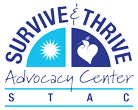Webinar: 1-2:30 p.m., Friday, May 15, 2020
VIEW A RECORDING OF THIS WEBINAR HERE.
This training is free, but registration is required.
Webinar Materials:
Description
This webinar will provide an overview of human trafficking and how it affects underserved populations as well as intersects with sexual and domestic violence. This program will also help participants build on their expertise in working within their specific communities as well as highlight challenges posed during this time of the Coronavirus pandemic. Case examples of both sex and labor trafficking will be used to illustrate what constitutes human trafficking and how to best identify and respond to survivors. Specific topics to be covered will include the importance of understanding and implementing trauma-informed approaches, confidentiality, intersections with child welfare and the impacts on children and families, working with law enforcement, resources, and building community responses. Ample opportunity for participants to ask questions and discuss concerns will be provided.
Outline
- Opening and introductions
- Definitions, laws, context of human trafficking (relevant statistics, vulnerability of victims, both adults and minors, disproportionate impacts on underserved communities, who are the traffickers, mandatory reporting, etc.)
- Intersections of human trafficking, sexual assault, and domestic violence
- Trauma and cultural/societal contexts of trafficking, abuse, risk factors, and oppressions
- Intersections between human trafficking and sexual assault (both sex and labor trafficking) and common indicators, particularly within underserved communities
- Approaching a survivor and survivor needs
- Survivor-driven responses; coordinating community resources and programs; other resources
- Challenges and needs in communities
- Vital role of advocacy
- Questions and discussion
Presenters
Marina Anderson, Florida Department of Children and Families Regional Human Trafficking Coordinator for Northeast and Northwest Regions. Marina joined the Department of Children and Families Office of Child Welfare Human Trafficking Team in May 2015. She began her career with DCF in 2002. For thirteen years she worked as a Child Protective Investigator (CPI) in Duval County. In 2014, she became a Field Support Consultant for DCF. Marina is a recognized expert in safety methodology, providing training and mentoring to CPI and CPIS, and was personally recognized by Governor Rick Scott as a STAR Child Protective Investigator. Marina is a certified investigator and trainer in human trafficking, and a subject matter expert in critical injury, domestic violence, physical/sexual abuse and human trafficking. Marina is also an approved Human Trafficking Trainer for the Florida Sheriff’s Association. Marina is an executive board member of the Northeast Region Human Trafficking Coalition, Freedom 7 Human Trafficking Coalition and Panama City Human Trafficking Task Force. She is also a member of the Alachua County Coalition against Human Trafficking, Big Bend Human Trafficking Coalition and Circuit 1 Human Trafficking Task Force. Marina Anderson holds a Bachelor’s degree in Criminal Justice from the University of North Florida.
Lashawn Gordon, Director of Membership and Engagement at United Partners of Human Services. She brings extensive experience in nonprofit management, community engagement, leadership and program development. She has worked in the human services sector for the last 17 years. She got her start in human services by working as a Foster Home supervisor at the age of 22. Prior to working at UPHS, she worked at PACE Center for Girls for 15 years. While at PACE, Lashawn helped expand the program from serving 45 girls to 70 and helped with the transition into a new facility. In 2016, she was awarded DJJ’s Leadership Award and was named the Unsung Shero Award by the Oasis Center for Women & Girls. In 2018, DJJ awarded her the Outstanding Service to Youth and Families Award. PACE also presented her with the statewide Creating Partnership Award. She is a member of Leadership Tallahassee (Class 34) and currently on the Board Directors for The Alzheimer’s Project, Inc., and PACE Center for Girls Leon. She is married and has one son. In her free time, she enjoys thrift sore shopping and reading.
Graciela Marquina, MSW, was born and raised in Mexico City where she completed her BA in Communications from the Iberoamericana University. She also holds a Masters in Social Work at Florida State University. Graciela started working at a very young age developing her interviewing skills with different populations in Mexico and the United States. While in Mexico, she helped homeless children. She also has conducted focus groups, and trained interviewers for social research.
Graciela currently serves as the Victim Assistance Coordinator for the Survive and Thrive Advocacy Center (STAC) and has worked in Tallahassee with survivors of domestic and sexual violence, serving as Program and Shelter Manager at Refuge House. She also has consulted with the FSU Center of the Advancement of Human Rights interviewing survivors of human trafficking. For the last 20 years, she has worked extensively with victims of human trafficking, as well as victims of domestic and sexual violence, assisting both immigrant and U.S. citizen survivors. Graciela has conducted numerous training programs on the topics of human trafficking, domestic violence and sexual assault and she assists Non-Governmental Organizations (NGOs) both in the U.S. and in Mexico to help victims of human trafficking. Graciela has published in two peer-reviewed publications, on topics concerning Hispanic populations.
Graciela volunteers extensively in her community. She served on the Board of Directors for PACE Center for Girls, has helped to establish the Survive and Thrive Advocacy Center (STAC) to assist victims of trafficking, she is an active member of the Big Bend Coalition Against Human Trafficking.
Robin Hassler Thompson, M.A., J.D., is the Executive Director of the Survive and Thrive Advocacy Center (STAC), non-profit agency she co-founded in 2015 to assist survivors of human trafficking. She also is an active member and co-chairs the Social Services Committee for the Big Bend Coalition Against Human Trafficking. Robin’s consulting firm, Robin H. Thompson and Associates, represents a wide range of clients including the FSU Center for the Advancement of Human Rights where she assists in the Center’s work on human trafficking.
In 2001, she traveled to Bangladesh as a part of a U.S. State Department mission, which included a site visit to a trafficking rescue shelter in Dhaka – this trip inspired her work to help build awareness about human trafficking. From 2002 to the present, she has directed numerous local and statewide anti-trafficking projects. Robin has lectured extensively on the topics of violence against women and human trafficking. She is a contributor to numerous national and international publications and curricula including a domestic violence and human trafficking on-line Continuing Medical Education (CME) course for the Florida Medical Association.
In addition to her anti-trafficking work, Robin’s areas of expertise include domestic and sexual violence law and policy analysis, Violence Against Women Act implementation, adult domestic violence fatality reviews, workplace violence law and policy and health care issues. Robin has served on and held leadership positions on local, state and national boards and committees and has chaired the local Leon County Commission on the Status of Women and Girls, where she lives in Tallahassee, Florida.
Robin served as the Executive Director for Florida’s first Task Force on Domestic and Sexual Violence during the administration of Governor Lawton Chiles. At the request of the U. S. Department of Justice, Robin served on the National Advisory Council on Violence Against Women. She graduated from Florida State University College of Law and in addition to her law degree, she holds an M.A. from Florida State University and a B.A. from American University in Washington, D.C.
This training is part of STAC’s monthly training series, offered on the third Friday of every month, in collaboration with the Big Bend Coalition Against Human Trafficking and the International Rescue Committee.
SPECIAL THANKS to the Center for Child Welfare at USF for hosting this webinar and providing a recording.







